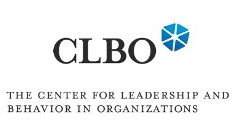Mission Statement of the Department of Social Psychology
With our mission statement we are building on the mission statement of the Goethe University:
Goethe University is a cosmopolitan institution of the future in the heart of Europe. Founded in 1914 by citizens for citizens, it has continued this tradition as an autonomous foundation university since 2008. Critically committed to its eventful history, it is guided by the ideas of the European Enlightenment, democracy and the rule of law and opposes racism, nationalism and anti-Semitism. Goethe University is a place of argumentative debates; research and teaching are a matter of social responsibility. With Johann Wolfgang Goethe as poet, thinker and natural scientist, it combines innovative thinking and interdisciplinary action.
Our guiding principles include:
- We respond to social questions in disciplinary diversity. For us, this includes looking at social issues from a socio-psychological perspective in exchange with other disciplines. To that respect, we deal for instance with topics such as cohesion in teams, organizations and society, or the meaning of prejudice in these contexts. Our team consists of scientists from various disciplines and we cooperate with many other colleagues from sociology, economics, archaeology, medicine, and other fields. This is exactly why we are all in it together. The results of our research are being used to inform business, politics and NGOs and to support them in their decisions.
- We are committed to the freedom and unity of research and teaching. In teaching, lecturers design on their own how their sessions are going to be held within the scope of course planning. In doing so, research and teaching go hand in hand, meaning that we pick up current topics of our own and international research as well as social debates in teaching and research. Simultaneously, it is important to us that our research and teaching are independent of business and politics. We are open for scientific problems, methods, cooperations with international scientists as well as the students’ needs and offer a safe space for - even controversial - debates.
- We do research, teach and learn at an international level. It is our goal to perform excellent work and be recognized for this. For this purpose, we work with scientists all over the world from various disciplines to answer our questions. We try to take into account the relevant recommendations of Open Science. We publish the results of our science in international, English-language journals as well as, if meaningful and socially reasonable, in outlets that address the general public in order to make them accessible to a broad group of readers. To facilitate the international exchange, we generally teach in English in the Master’s program, whereas in the Bachelor’s program our lecture is held in English.
- We review our own performance in a constructive-critical manner. For us, this means that our work is critically questioned and that we use the feedback from our teaching evaluations and scientific reviews to constantly improve ourselves. On a regular basis, we exchange views with colleagues inside and outside of the department to get new suggestions that we can incorporate into our research and teaching to get to know our blind spots. We are living a culture of feedback in which we actively look for feedback. Our performance and successes are gladly being celebrated together.
- We understand ourselves as a learning organisation. In terms of Social Psychology this implies that we remain loyal to our values but that we can change our opinion and methods in accordance with new discoveries. We are constantly developing to paraphrase ‘The journey is the true destination’. To this extent, we get our inspiration and recommendations on regular content-related as well as methodological trainings, in attending national and international conferences relevant to our subject, the exchange with business and politics, and further development of our seminar concepts as well as lectures on the basis of student evaluations.
- We ensure transparent management structures and participation of all parties. The structure of our department is transparent from inside and outside whereas we have clear responsibilities within our team. Nevertheless, we understand ourselves as a ‘we’ – which functions the best and in which we enjoy ourselves the most when we all pull together and contribute our respective interests and abilities to the shaping of the team. Therefore, we live flat hierarchies and an exchange at eye level. To enable everyone’s participation, we question ‘old’ structures and processes and consider individual needs of all employees.
- We realize equal opportunities. We value diversity in all its forms. In particular, we appreciate every person independent of characteristics like age, sex, cultural background, physical as well as mental health or their religion. All human beings are – independent of their position as well as their background – of equal value for us and receive the same opportunities. Consequently, we are engaging in the reduction of existing disadvantages, e.g. through active recruitment, the offer of English-language courses or a variety of different teaching methods in order to accompany the students on their learning path in the best possible way. However, when restricting the freedom of another person, freedom and freedom of speech end for us.
Our core values - what do we stand for?
- Freedom of research and teaching
- High scientific quality
- Internationality
- Interdisciplinarity
- Equal opportunities
- Diversity
- Applied Social Psychology
- Positive feedback culture
- Developing - ourselves and others




